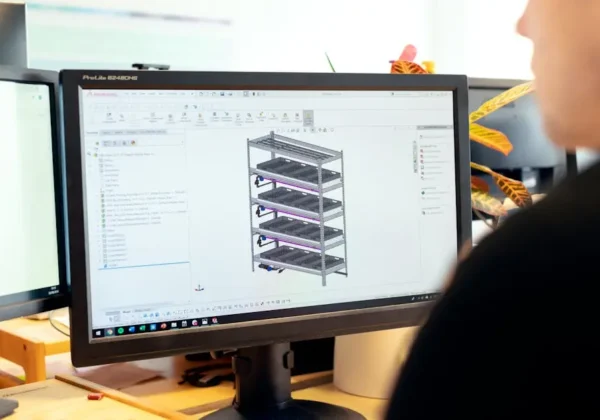In today’s fast-paced construction industry, engineering consulting plays a pivotal role in shaping the skyline of our cities and the infrastructure that supports our daily lives. Whether it’s helping to design a new skyscraper or ensuring the safety of a bridge, engineering consultants provide critical expertise and guidance throughout the construction process. In this blog post, we’ll explore the various facets of engineering consulting and its importance in modern construction projects.
The Foundations of Engineering Consulting
Engineering consulting firms offer a wealth of knowledge and experience, creating a strong foundation for any construction project. Through careful analysis and planning, they help anticipate and mitigate potential challenges, ensuring the success of the construction process. Firms like Ludlow Engineering bring in a blend of state-of-the-art technology and skilled professionals to offer precise surveying and planning services. Their expertise ensures that projects are not only compliant with local regulations but are also optimized for efficiency.
These firms possess the ability to address both the macro and micro elements of a project. From overseeing local regulations to managing the finer details, consultants play a vital role throughout the life cycle of a project. This ensures a seamless transition between project phases, which can significantly reduce time delays and cost overruns. Using a variety of tools and methodologies, consultants provide essential oversight and strategic direction. Furthermore, their guidance helps maintain the project’s alignment with environmental and sustainability goals FCL Fidic.
Key Areas of Expertise in Engineering Consulting
Consultants specialize in various areas such as structural engineering, environmental impact assessment, and project management. Each team brings unique skills, tailoring their approach to meet the specific needs of a project. At the heart of civil engineering is the ability to adapt to complex situations, providing solutions that are both innovative and sustainable. This adaptability is crucial in executing projects efficiently, regardless of external challenges.
Besides their technical expertise, engineering consultants excel in management and leadership. They coordinate multiple teams, negotiating between architects, builders, and clients to achieve a cohesive effort towards a common goal. Their ability to navigate technological advances, like utilizing innovative tools and software, enhances the entire construction process, enabling them to tackle unexpected issues swiftly and effectively.
Collaborative Approach to Project Success
Successful construction projects rely on collaboration over competition. This involves consultants working in harmony with architects, builders, and clients. By fostering an environment of collaboration, teams can integrate creative designs that meet both aesthetic appeal and functional necessity. Such synergy ensures clients receive a product that not only meets their needs but also adheres to safety and efficiency metrics.
An engineering consultant’s role extends beyond providing technical solutions. They act as mediators, bridging communication gaps that may exist between diverse teams. Effective collaboration yields a product that combines innovative design with practical applications, minimizing the risk of discrepancies or misunderstandings that could arise during the project’s lifecycle. Ludlow Engineering exemplifies how a collaborative approach fosters success through active engagement and research.
The Impact of Technology on Modern Consulting
Technology continues to transform the consulting industry. Advanced tools and software enhance the ability to analyze, simulate, and manage complex engineering tasks with accuracy. Technologies like 3D modeling enable consultants to visualize potential challenges and solutions in a digital environment before concrete is poured. Such capabilities improve accuracy and efficiency across all project stages, making technology an indispensable part of modern engineering consulting.
Automation and AI have become pivotal for processing large data sets quickly and making informed decisions with a level of precision that was previously unimaginable. This technological advancement allows for the anticipation of potential problems and streamlines the mitigation process. Engineering consultants use these technologies to deliver more innovative and cost-effective solutions, ensuring their clients receive robust and resilient systems tailored to their specific needs FCL Fidic.
Ensuring Safety and Sustainability
Safety and sustainability are integral to modern construction projects. Engineering consultants are key to implementing these principles by ensuring projects adhere to safety and environmental standards. Their role involves overseeing compliance with regulations, assessing environmental impacts, and integrating sustainable practices from the project’s inception.
By focusing on sustainable design, engineering consultants can help lessen a project’s environmental footprint, while also providing economic benefits. Implementing eco-friendly strategies not only protects the environment but also often results in cost savings over a project’s lifetime. This dual benefit underscores the critical role of consultants in shaping a safe and sustainable future. For those looking for a reliable partner in navigating these complex elements of construction, firms like Ludlow Engineering stand out for their commitment to excellence in safety and sustainability.
The Indispensable Role of Engineering Consultants
Engineering consulting has become an indispensable part of the modern construction landscape. With their expertise and innovative solutions, consultants help to navigate complex challenges, ensuring projects are safe, sustainable, and cost-effective. As construction demands continue to evolve, the role of engineering consultants will only grow more vital, making their contribution to our built environment invaluable.




